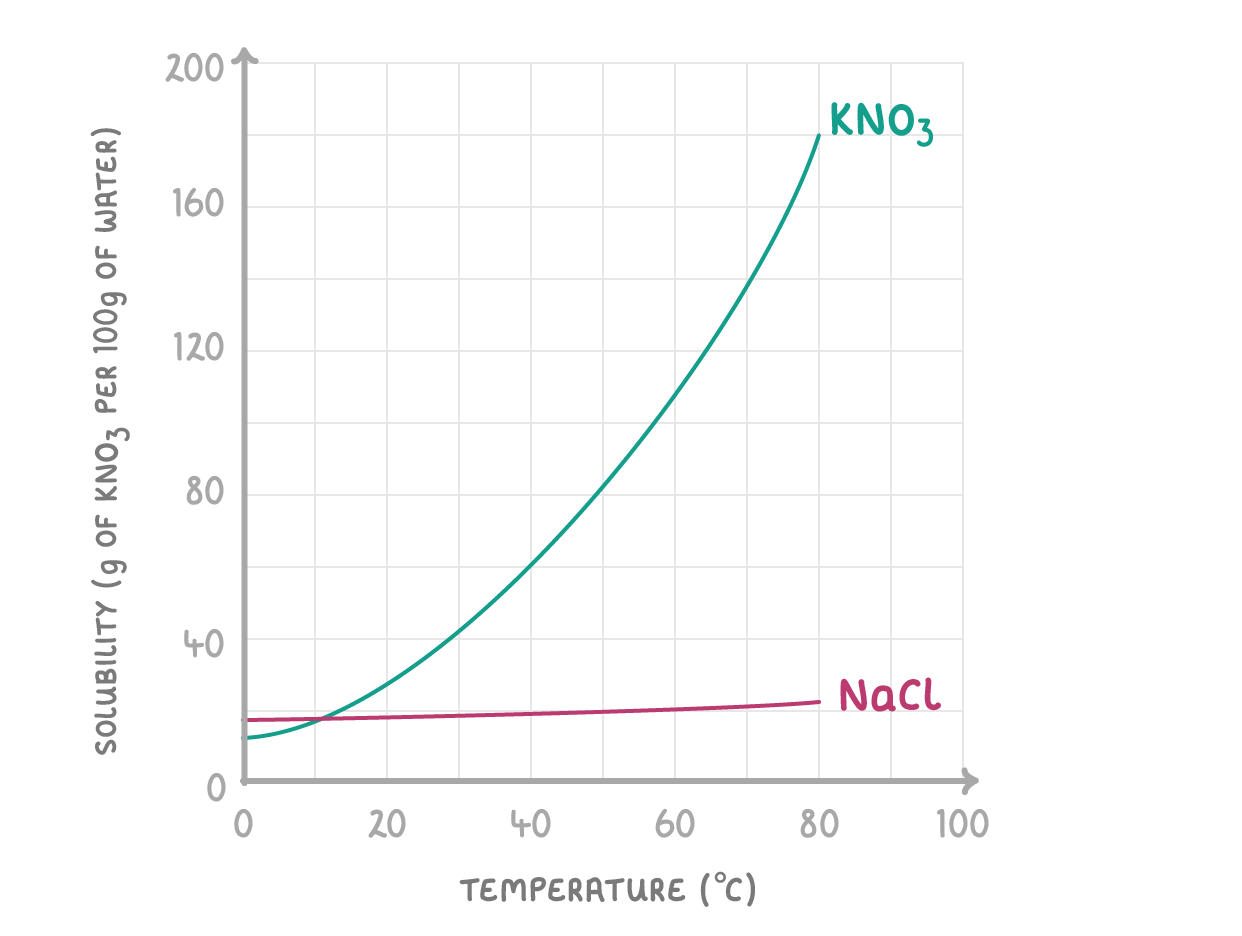Welcome to the Quiz!
This quiz contains 5 questions from a mix of 1 subtopics.
Solubility and temperature |
Solubility is defined as the maximum amount of a substance that will dissolve in a given amount of solvent at a certain temperature. For example, the maximum amount of NaCl that can dissolve in 100g of water (at 25°C) is 35g, therefore the solubility of NaCl is 35g per 100g of water (at 25°C). |
The temperature is important because most substances become more soluble at higher temperatures. We can see this on solubility curves which show how the solubility of a substance changes with temperature. The graph below shows the solubility curve for potassium nitrate (KNO3). |
 |
Some sodium chloride is dissolved in water.
What do we call the sodium chloride?
Solvent
Saturated solution
Solute
Solution
|
Some potassium nitrate is dissolved in ethanol.
What do we call the ethanol?
Saturated solution
Solvent
Solute
Solution
|
Which units do we usually use to measure solubility?
g/100g
g/dm3
mol/dm3
mol/100g
|
increases / decreases
As the temperature increases, the solubility of most solutes .
|